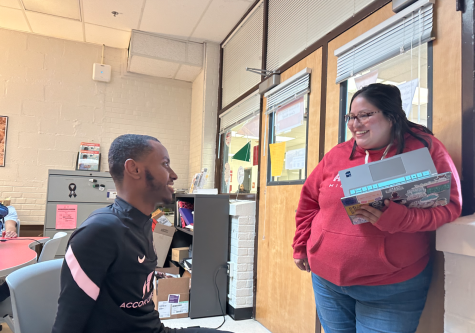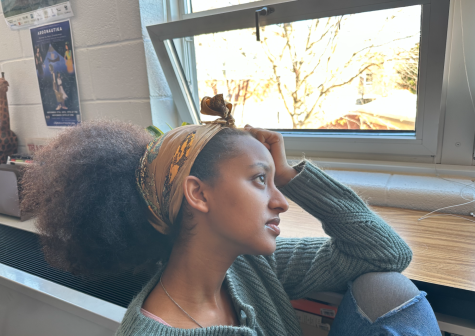The long-term impacts of COVID-19
There is no doubt that the pandemic has impacted everyone in the past year, particularly teens. According to Councilrecovery.org, teens have the Prefrontal cortex in their brain that does not fully develop until age 25.
“Adolescents may need additional support when it comes to regulation, which includes sleep patterns, use of time, and technology usage. Because of the pandemic, students lost the structure of school time, and when coupled with a lack of parental support, this left students to navigate on their own.”
This has led to irregular sleeping patterns and a lack of focus amongst teens. With that part of their brain having to develop in quarantine, it could majorly affect future relationships and mental health.
“My whole life, I’ve been a competitive swimmer, and up until 2020, I was practicing 5 to 6 days a week. Once Covid hit, my practices were canceled and I wasn’t able to swim, which has been part of my daily routine for as long as I can remember,” sophomore Maya Mann said.
“At first, it was really weird because something that I’m so used to was taken away and I was just expected to stay home all day, but luckily I’m able to get back in the pool with some restrictions implemented, of course.”
“School is also currently a huge burden in my life because being online is extremely tiring and I have lost almost all motivation. I spend most of my free time doing homework and it’s becoming exhausting,” Mann said.
A study coming from the Roxs Institute has found that over 80% of adolescent girls have felt more lonely than ever. This can cause a spike in mental illnesses such as depression and anxiety within all teens regardless of their gender.
Having to quarantine is hard enough as a teen, but adding other responsibilities such as babysitting or housework adds additional stress. This can also affect students’ school life because, with all the new responsibilities they have to tend to, they may not have the means to completely dedicate their time to school as they normally would in person.
With social distancing implemented within our local government, it is hard for teens to receive emotional support from their friends during this unprecedented time. Although we have FaceTime and other apps made so that we can virtually talk to our friends, many complain that it lacks the same effect as seeing your friends in person and being able to physically socialize.
“When the pandemic first began, I was really worried because I didn’t know how this would affect mine and millions of others’ lives. I was worried that this is something with no end and this will just become our new normal,” junior Hana Wasuge said. “Now with all the research that’s coming out and vaccines I have a peace of mind and my anxiety has calmed down.”
“The researchers found that teenagers who showed greater connectivity, or interconnectedness, in a set of particular brain regions were less likely to experience pandemic-related depression and anxiety,” Rajpreet Chahal from Stanford Department Of Psychology said.
Many psychologists and scientists are worried that the pandemic could affect teen psychological development. No generation in the past hundred years has had to grow up quarantining and social distancing throughout their childhood, so there is no doubt that is going to leave an effect on teens’ mental health.
Not to mention the fact that the pandemic has had on teens’ physical health as well. Pre-Covid, teens were used to playing sports on teams and participating in outdoor activities, but since the pandemic began, many sports teams have been canceled and teens are no longer able to participate in activities without social distancing and mask-wearing.
This has obviously left a major effect on teens because they were used to getting some sort of physical activity at least twice a week but now that has completely been thrown out the door.
“A large number of my family members are high-risk so the pandemic was very scary to me. I was very cautious when going out to places like the supermarket and I haven’t seen any of my friends in months,” sophomore Ellie Davis said. “Things are definitely getting better as new research and medicines are being released.”
Despite the circumstances, there is a bright side to things. President Biden has announced that the vaccines will be available to teens this upcoming fall time, which will give teens a sense of normalcy and peace of mind when hanging out with their friends in person again.
Not to mention, many in-school sports and activities are being implemented, but this time with masks and social distancing enforced.
Although we have to take extra precautions now, it is nice to be able to see our peers in person and not have everything completely taken away by the pandemic.

Senior Sereene Darwiesh has been on The A-Blast since freshman year. She spends her time reading and hanging out with friends, her hobbies consist of baking...






